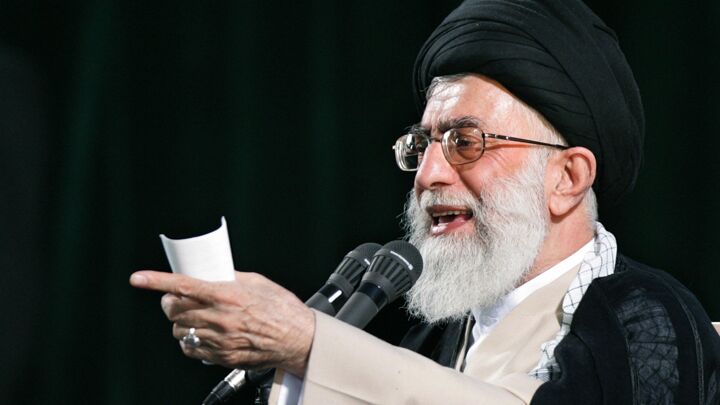
Iran’s Ayatollah Khamenei Confident U.S. Has Given Up on Military Attack
In a speech on the 25th anniversary of the death of Ayatollah Ruhollah Khomeini on June 4, Iran’s supreme leader Ayatollah Ali Khamenei expressed confidence in America’s lack of will to pursue military confrontation with the Islamic Republic.
“A military attack from the viewpoint of the Americans is not a priority,” assured Khamenei. “They have understood that in Afghanistan and Iraq, after a military invasion, they were harmed. Therefore, it can be said that they have given up on the military attack.”
That’s incisive, considering the rising antiwar sentiment in the United States and the prohibitive cost of war to a nation deluged by insurmountable debt. More so when you factor in America’s hasty departure from Iraq in August 2010, after an agonizingly lengthy and largely unsuccessful campaign that left Iraq relatively chaotic, closer to Iran and more vulnerable to Iranian meddling. It’s all the more perceptive when you consider America’s ongoing drawdown of troops from Afghanistan, not to mention the weakness displayed by the 1-to-5 swap of Bergdahl and high-level terrorists, as Trumpet executive editor Stephen Flurry explained on the Trumpet Daily.
Khamenei also shared his take on the Arab Spring. He (and many Iranian officials) considers the movement an “Islamic Awakening”—a continuation and spread of the Islamic Revolution in Iran of 1979. Not understanding this, he said, “will be another one of our enemy’s strategic mistakes and incorrect analysis. It’s possible that in some parts of the world, the Islamic Awakening will be suppressed, but undoubtedly, it will not be uprooted and it will spread.”
Khamenei’s “Islamic Awakening” is essentially an Arab Spring that conforms to Iranian interests. Iran does not support the revolution against Syria’s Bashar Assad, but recognizes those that yielded Islamist regimes, as was the case with the Egyptian revolution that empowered the radical Muslim Brotherhood.
Iran’s increasing clout in the Middle East and America’s diminishing resolve and willpower are there for all to see. As Stephen Flurry highlighted on Friday, President Obama’s Cairo speech in 2009 was a turning point in the Middle East that set the stage for the Arab Spring and Iranian empowerment. The ayatollah sees this clearly—and is taking advantage.
